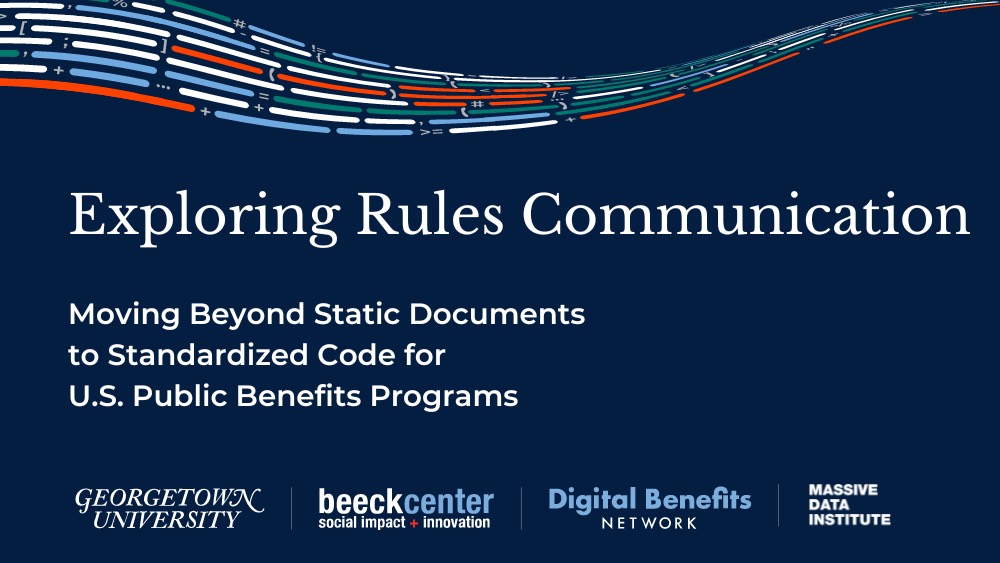Digitizing Policy + Rules as Code
Modernized Rulemaking for Benefits Delivery
A rules as code approach to benefits eligibility rules and regulations could help close the gap between policy and service delivery for governments, delivery organizations, and, most importantly, people seeking benefits.
Translating policy into standard and transparent computer code.
Every day, millions of people across the United States use digital systems to find out if they are eligible for health and human services, and then apply for, enroll in, and maintain their benefits. In order to implement these digital systems, program and policy teams work with software developers to translate laws, regulations, and policy documents into computer code.
This is not a straightforward process. Implementation requires collecting and interpreting a jumble of potentially conflicting sources across programs and states. Because a certain amount of ambiguity is unavoidable in policymaking, implementers must make subjective decisions about the intended meaning of policy elements. Compounding the potential for errors and inconsistencies, this process is repeated every time there are changes or updates to rules, and duplicated across every entity that uses a digital system for benefits access.
There is a fix for this, though: digitizing benefits eligibility rules at their source and approving them as an official version of the policy. Digitization of benefits policy promises to dramatically reduce implementation burdens, improve transparency and integration of benefits programs, and facilitate real-time modeling of proposed program updates and amendments. This is the place to learn more.

Featured Content






